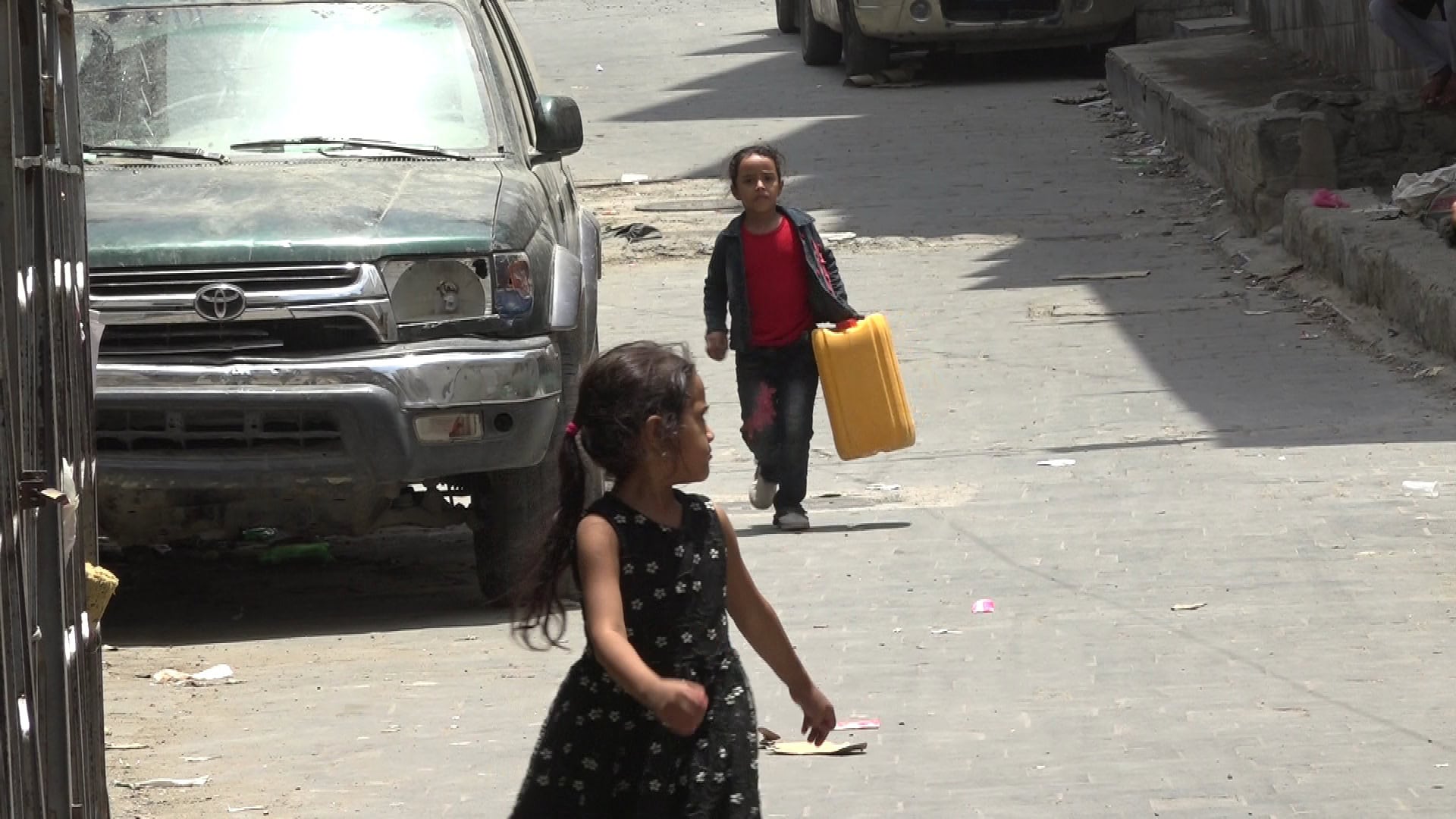
Photo: Children in Taiz city searching for water, August 2025 (South24 Center)
Last updated on: 26-09-2025 at 10 AM Aden Time
|
|
Taiz (South24)
A new field study by South24 Center has shed light on Taiz’s deepening water crisis, a humanitarian emergency entrenched by years of war and siege. The report argues that the crisis is not just about scarce resources, but also about failed governance and the lack of sustainable management.
The study explained that Taiz, before the war, relied on four main fields containing around 88 wells, providing more than 20 million liters of water daily. However, most of these wells stopped working because they were located in front-line areas or under Houthi’s control.
Engineer Samir Abdul Wahid, the former director of the Taiz Water Authority, stated, "The siege is not only geographical but also water-related; the fields have become choke points since 2015."
With most wells shut down, Taiz has been forced to depend on small emergency wells producing just 3 million liters a day, barely a fraction of the city’s needs. The shortage has fueled a thriving black market, where a single 6,000-liter water truck can cost 75,000 riyals, nearly four-fifths of a public school teacher’s monthly salary.
The study also addressed the Sheikh Zayed Water Project funded by the UAE in the Talouq field, designed to deliver 7 million liters a day to Taiz. However, the project has stalled due to social and technical disputes, with accusations of a lack of scientific studies and transparency. It was noted that six wells drilled as part of the project have not yet become operational.
According to field testimonies, the uncontrolled expansion of qat cultivation has contributed to the depletion of water basins, in addition to the lack of oversight on private well drilling. One resident of Wadi al-Dhabab said, "We used to drink from these springs and irrigate our farms. Today, the land is as thirsty as we are," referring to the environmental changes that have exacerbated the crisis.
Strategic Recommendations
1. Restructuring the Taiz Water and Sanitation Authority to transform it from a fragile body into a flexible and effective administrative entity with financial and administrative independence.
2. Establishing an independent regulatory body composed of technical experts, representatives from civil society, and specialized environmental agencies. This body would be responsible for monitoring the implementation of water projects and ensuring transparency and accountability.
3. Imposing mandatory environmental assessments before the implementation of any new project, including a review of the "Sheikh Zayed" project to ensure its alignment with environmental standards.
4. Launching programs to rehabilitate water basins through afforestation of mountain slopes and planting vegetation that can enhance soil water absorption and reduce erosion.
5. Involving the local community in water resource management by forming community water councils in the affected neighborhoods, serving as a link between citizens and the water authority.
6. Launching widespread awareness campaigns in schools, mosques, and local media to instill a culture of water conservation and link responsible usage with national responsibility.
7. Transitioning from temporary emergency solutions to preparing a ten-year water resource management plan, focusing on diversifying sources, including seawater desalination projects.
8. Integrating the climate dimension into water policies by linking water plans with climate change adaptation strategies.
Researcher Noha Abdullah emphasized that what Taiz needs today is not temporary or emergency water tankers, but a long-term strategic vision that secures citizens’ right to clean and sustainable water.
She pointed out that water “is no longer just a service resource, but a symbol of human dignity and a necessary condition for rebuilding life in a city exhausted by the war of the Houthi militia and burdened by poor management”.
According to the study, implementing these recommendations could bring a radical transformation to the water situation in Taiz; instead of costly and unsustainable emergency solutions, a decentralized water system can be built based on smart water collection, fair distribution, reducing losses, increasing efficiency, and granting residents a direct role in maintaining and managing their vital water sources.